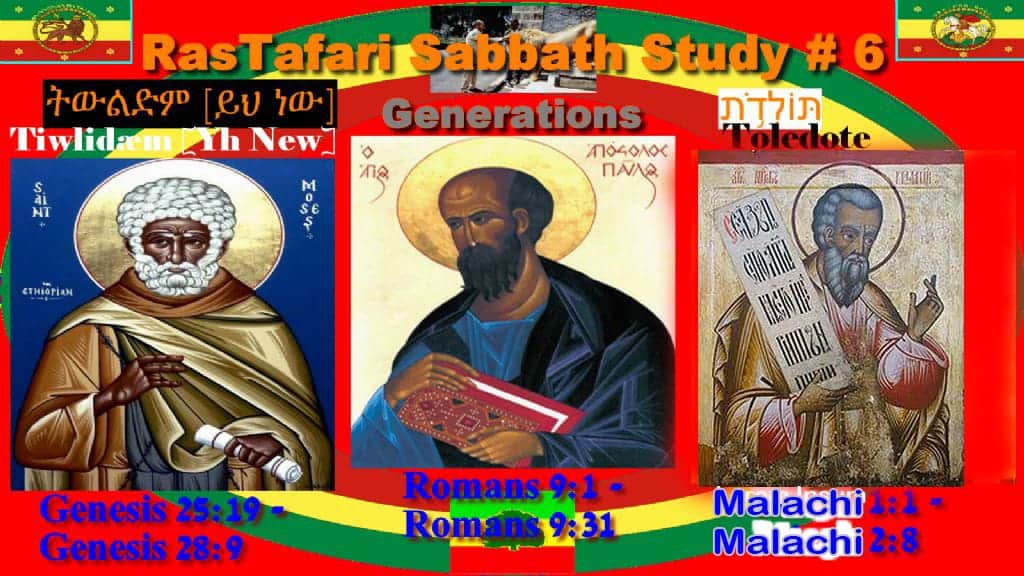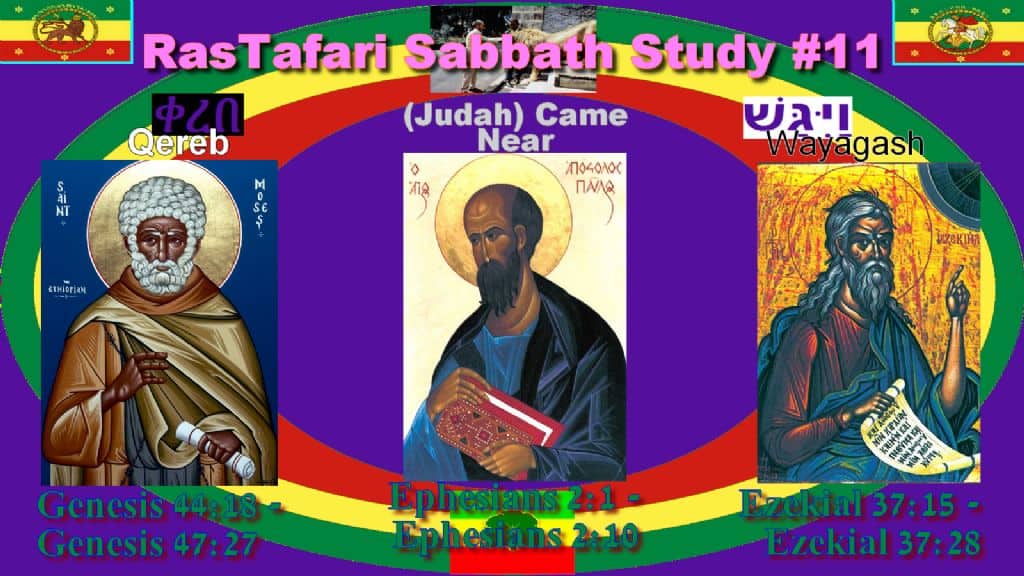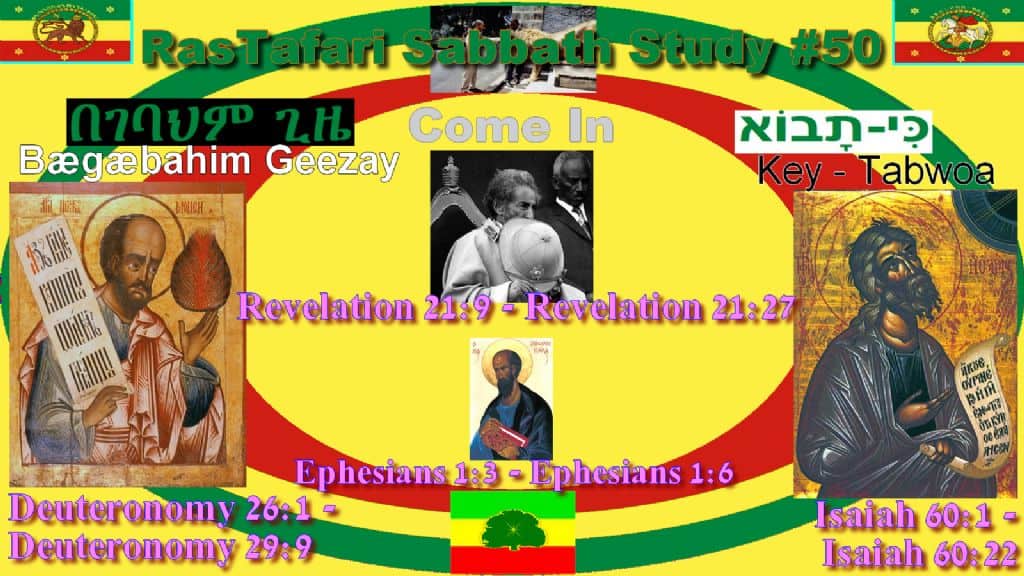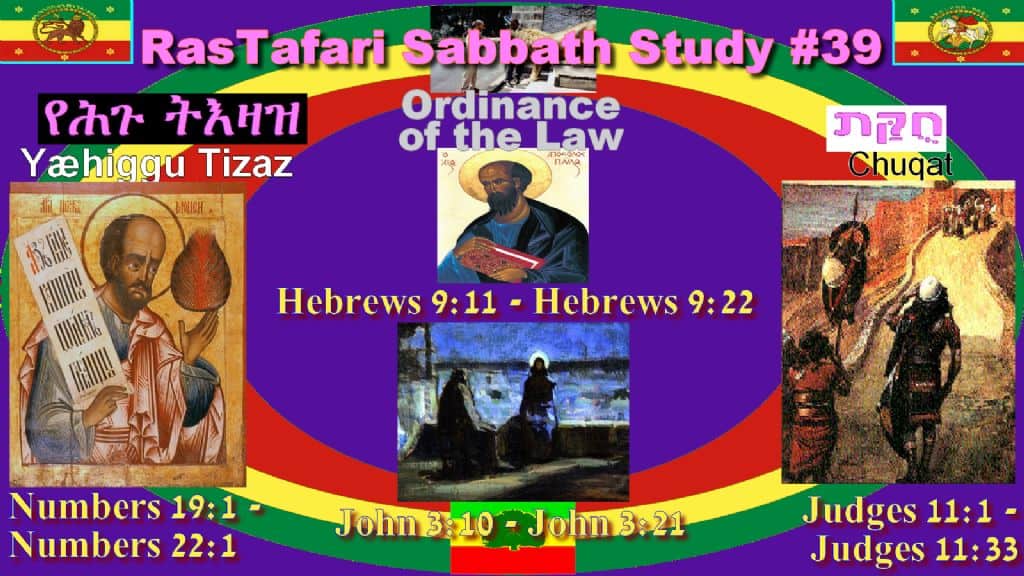This Week's Portion #6
Toldot | תולדות | "Generations/Family history" ትውልድም [ይህ ነው] | Twldm/Tiwlidim [y’h’new]
*For a PDF version of All the Torah Portions Schedule, click here to download!
2. Prophets Reading
Malachi 1:1-2:7
3. New Testament Reading
Romans 9:1-31
Portion Outline - TORAH
- Genesis 25:19 | The Birth and Youth of Esau and Jacob
- Genesis 25:29 | Esau Sells His Birthright
- Genesis 26:1 | Isaac and Abimelech
- Genesis 26:34 | Esau's Hittite Wives
- Genesis 27:1 | Isaac Blesses Jacob
- Genesis 27:30 | Esau's Lost Blessing
- Genesis 27:41 | Jacob Escapes Esau's Fury
- Genesis 28:6 | Esau Marries Ishmael's Daughter
Portion Outline - PROPHETS
- Malachi 1:1 | Introduction
- Malachi 1:2 | Israel Preferred to Edom
- Malachi 1:6 | Corruption of the Priesthood
Portion Study Book Download & Summary
BEREISHIT Hebrew Book of Genesis - Torah Portion Vol.1 (FREE PDF)
The sixth reading from the book of Genesis is named Toldot (תולדות), which means “generations.” It is so named because the Torah portion begins with the words “Now these are the records of the generations of Isaac” (Genesis 25:19). Toldot tells us the story of the birth of Jacob and Esau and their struggle for the birthright and blessing of their father, Isaac. We also learn about Isaac’s trials and difficulties in the land of Canaan. The portion concludes with Jacob’s deception of Isaac in order to procure the family blessing.
Portion Commentary
Isaac Prays for Rebekah
Thought for the Week:
The Prayers of the Righteous: The Talmud says, “Why were our ancestors barren? Because the Holy One, blessed be He, longs to hear the prayer of the righteous” (b.Yevamot 64a).
Commentary:
Isaac prayed to the LORD on behalf of his wife, because she was barren; and the LORD answered him and Rebekah his wife conceived. (Genesis 25:21)
Just as Abraham’s wife, Sarah, was barren, Isaac’s wife, Rebekah, was also unable to bear children. For twenty years she and Isaac tried to have a child. It is normal for a couple to desire children, but for Isaac it was critical. He was the inheritor of the great promises given to his father Abraham. If he did not have children, those promises could not be passed on to the next generation. Isaac turned to the LORD and entreated Him on behalf of Rebekah.
Rashi makes two notes on the Hebrew wording of Genesis 25:21. When it says that Isaac prayed, it uses a word that implies entreaty. Rashi explains that this means Isaac persistently prayed on her behalf. We can assume that Isaac had been praying throughout the twenty years of her barrenness. That’s persistent prayer.
Yeshua teaches us to pray persistently. He said persistent prayer can be compared to a widow who continually entreated the local judge to hear her case. Though the judge neither feared God nor respected men, he decided to hear her case lest she wear him out with her nagging. If persistent entreaty works on an unjust judge who neither fears God nor men, how much more so will the just Judge of the universe be moved to answer our entreaties.
Yeshua told another parable about the power of persistent prayer. He compared it to a man who needed to borrow food from his neighbor to feed an unexpected guest, but his neighbor had already gone to bed. The man continued to entreat his neighbor until the man eventually got out of bed and gave him what he needed. If persistent entreaty works on a lazy, reluctant neighbor, how much more so on God, who neither slumbers nor sleeps. (Luke 11:5–8) Yeshua encouraged us to pray persistently, saying, “Ask, and it will be given to you; seek, and you will find; knock, and it will be opened to you” (Luke 11:9).
Rashi makes a second observation on the Hebrew wording of Genesis 25:21. He notes that the Hebrew says that “Isaac entreated the LORD opposite his wife.” Rashi explains, “Isaac stood in one corner and prayed while Rebekah stood in the opposite corner and prayed.” In other words, Isaac and Rebekah prayed together.
The LORD heard the prayers of Isaac and Rebekah and answered by allowing Rebekah to conceive. Just as Sarah’s conception of Isaac was a direct miraculous intervention of God, so too with Rebekah. There is great power in the entreaties of a husband and wife who commit to praying together.
Middot U’Mitzvot (Character and Deeds)
Apologies
We have not touched you and have done to you nothing but good and have sent you away in peace. (Genesis 26:29)
The Philistines asked Isaac for a covenant of peace on the basis that they had done “nothing but good” to him and that they had sent him away in peace. Isaac must have had to bite his tongue. Nothing but good? Sent me away in peace? Weren’t these the same Philistines who had driven him out their territory? Weren’t they the same Philistines who had pursued him into the Negev and took away his wells? How could they say they had done nothing but good?
Actually, this was how the Philistines apologized for the evil they had done to him and for sending him away in strife. Some people cannot apologize properly. Their ego prevents them from ever admitting any wrong on their own part. Deep inside, such a person knows that he is at fault and that he needs to make some sort of conciliatory effort, but an apology is not even a remote possibility. His pride forbids him.
For example, suppose your sister is upset and says some caustic things to you. A few days later you see her again and expect that she is still angry. Instead she converses with you as if her outburst a few days ago had never happened. You are bewildered. She was unkind just a few days ago, but now she is speaking to you as if the entire incident has been completely forgotten. This is her way of apologizing.
Isaac was willing to overlook the foolish pride of the Philistines in order to make peace with them. So too we should accept even half-hearted attempts at reconciliation. We should not demand a formal apology. Instead we should be willing to take whatever modicum of peace our adversary offers.



![Toldot | תולדות | "Generations/Family history" ትውልድም [ይህ ነው] | Twldm/Tiwlidim [y’h’new]](https://rastafarigroundation.org/wp-content/uploads/2019/11/IMG-20191125-WA0009.jpg)
![Toldot | תולדות | "Generations/Family history" ትውልድም [ይህ ነው] | Twldm/Tiwlidim [y’h’new] Toldot | תולדות | "Generations/Family history" ትውልድም [ይህ ነው] | Twldm/Tiwlidim [y’h’new]](https://rastafarigroundation.org/wp-content/uploads/2019/11/IMG-20191125-WA0008.jpg)






































































































